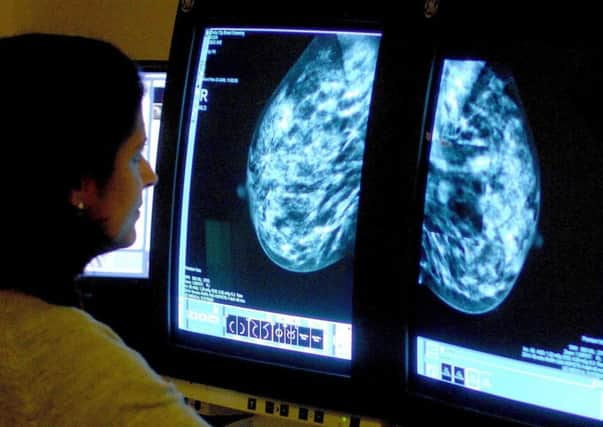Risks of combined HRT therapy '˜may have been underestimated'


Taking the treatment could mean that women are 2.7 times more likely to develop breast cancer than those who are not, a new study which is published today has found.
Women taking combined HRT are more likely to develop the disease, with risk increasing the longer it is used, the study revealed.
Advertisement
Hide AdAdvertisement
Hide AdThe new research, published in the British Journal of Cancer, found that those taking oestrogen plus progestogen HRT were 2.74 times more likely to develop breast cancer.
And those who had been using the combined HRT for 15 or more years had a 3.27 times increased risk, the study found.
But once HRT use ended the increased risk returned to normal levels, the authors stressed. Those taking oestrogen-only HRT did not have an increased risk, they found.
“Our research shows that some previous studies are likely to have underestimated the risk of breast cancer with combined oestrogen-progestogen HRT,” said study lead author Anthony Swerdlow, professor of epidemiology at The Institute of Cancer Research, London.
Advertisement
Hide AdAdvertisement
Hide Ad“We found that current use of combined HRT increases the risk of breast cancer by up to threefold, depending on how long HRT has been used. Our findings provide further information to allow women to make informed decisions about the potential risks and benefits of HRT use.”
The findings were drawn from thousands of women taking part in the Breast Cancer Now Generations Study – a major report following more than 100,000 women for 40 years to investigate the causes of breast cancer.
Experts analysed data over six years from almost 40,000 menopausal women – 775 of whom developed breast cancer.
HRT is used to treat symptoms of the menopause – such as hot flushes, migraines, disrupted sleep, mood changes and depression – by replacing hormones lost through the menopause.
Advertisement
Hide AdAdvertisement
Hide AdFor about 10 per cent of women, symptoms can last for up to 12 years. The average age for menopause in the UK is 51. About one in 10 women use HRT during their 50s.
Research has shown that HRT increases the risk of breast and ovarian cancer, while links have also been made with stroke and heart attack. But the authors of the latest study said that previous studies could have underestimated the risk of breast cancer because they did not use updated information on women’s use of HRT over time and took into account when they actually began the menopause.
Earlier investigations may have underestimated the increased risk of breast cancer by up to 60 per cent, the authors added.
The chief executive of the charity Breast Cancer Now, Baroness Morgan, added: “Whether to use HRT is an entirely personal choice, which is why it’s so important that women fully understand the risks and benefits and discuss them with their GP. We hope these findings will help anyone considering the treatment to make an even more informed decision.
Advertisement
Hide AdAdvertisement
Hide Ad“On balance, some women will feel HRT to be a necessity. But in order to minimise the risk of breast cancer during treatment, it is recommended that the lowest effective dose is used for the shortest possible time.
“The good news is that the increased risk of breast cancer begins to fall once you stop using HRT.”